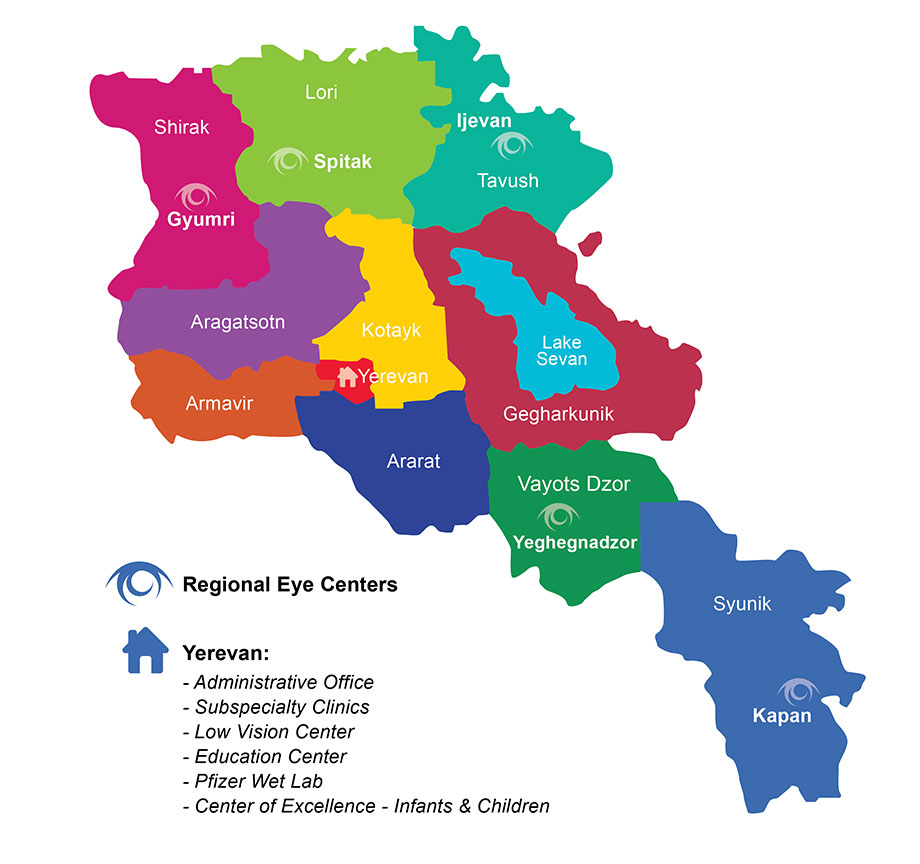An Ocular Prostheses, or prosthetic eye, replaces a missing or highly damaged natural eye following serious disease or injury. Though prosthetic eyes do not restore vision, they are an essential part of the healing process for those who have lost their natural eye. The prosthetics provide support for the muscles and bones of the eye socket and allow a person’s face to retain its natural structure. Prosthetic eyes also maintain the natural look of the face by filling the empty eye socket with a realistic glass or acrylic eye, allowing people to retain their facial expression and function and therefore play a crucial role in helping them — especially children — to regain their confidence and to maintain their social and emotional connections with others in school, at work and in their community.
Prosthetic eyes are expensive and need to be replaced often for children as they grow. The medical costs for an individual or family needing a prosthetic eye can often be more than they can afford. For adults, prosthetic eyes require replacement every two years, but as children grow they require a replacement for their prosthetic eyes every six months to one year, creating large medical bills out of reach for most Armenian families.
To offset these costs, the United Nations Women’s Guild and Mrs. Annette Hayrapetian of New York along with other EyeCare Project donors have assisted with financial help for families in need. From 2011, when the Prosthetic Eye Program was established, through 2017, the EyeCare Project has provided prosthetic eye replacements for 26 children and three adults for a total of 51 eyes — several children received more than one prosthetic eye.
Alex Ghukasyan, 4-years-old, Receives a Prosthetic Eye. At first glance nothing differentiates Alex from other children his age. He is an active child who attends kindergarten and enjoys playing with his brothers and sisters and neighborhood children. However, since he was a baby, Alex has experienced a number of eye problems. After he was born, Alex was diagnosed with inborn endophthalmitis in his left eye. Despite six attempts at successful surgery, the doctors the surgeons were unable to save his eye. Finally, doctors recommended that Alex have his eye removed.
In the beginning Alex experienced discomfort and complications wearing his prosthetic eye. His parents, Karen and Manya, needed to watch Alex closely because he could easily injure his prosthetic eye while playing or by getting something into his eye. However, as time went by, Alex became used to his prosthetic eye and learned to be more careful while playing.
After Alex became accustomed to his prosthetic eye the major issue for his family was the cost of the eye replacements, which needs to be replaced every five to six months for children. Alex’s family lives in poor social conditions and has no stable income. In September, 2017, Alex received his second prosthetic eye with a generous donation from the UN Women’s Guild. His mother said the family is most grateful — “I see Alex is not ashamed of his eye and without this wonderful opportunity he could experience harmful social isolation from his peers.”






